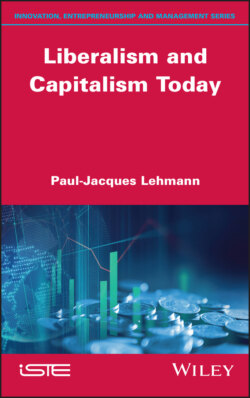Читать книгу Liberalism and Capitalism Today - Paul-Jacques Lehmann - Страница 20
1.3.2. The emergence of the urban bourgeoisie: a Western phenomenon
ОглавлениеPre-capitalism changed substantially at the end of Antiquity when the Roman Empire no longer emerged victorious from the wars it waged and was no longer able, contrary to what had happened previously, to bring back to its soil the defeated who had, until that point, been used as slaves, as domestic labor, by rich aristocrats. From the 12th century onwards, as the medieval period developed, the situation that had prevailed until then changed with the rise in power of the city.
Max Weber points out that this development can only be seen in the West, where, as far back as Antiquity, the city was the only place where one could change from being a non-free person to a free person. However, as has just been pointed out, royal and military power exerted such an influence there that no political commune could emerge, and no commune of autonomous citizens could emerge in the face of royal power, because the citizen was not a military man. “Modern capitalism and the modern state were not built on the soil of ancient cities, whereas the development of medieval cities was decisive” (Weber 2019) thanks to the coalescence of several conditions, namely: they had fortifications and a court with a specific right, they had a market place, they enjoyed complete autonomy and they were run by officials who were accepted by all and who applied regulations decreed by the citizens.
Weber explained that such a system was unthinkable in Asia because of family conditions and in India because of the caste system. The medieval cities would be transformed, first in Italy, then in the other countries of Northern Europe, because of their cultural history, while those of the South would long remain excluded from this evolution as the nobility there remained very powerful.
